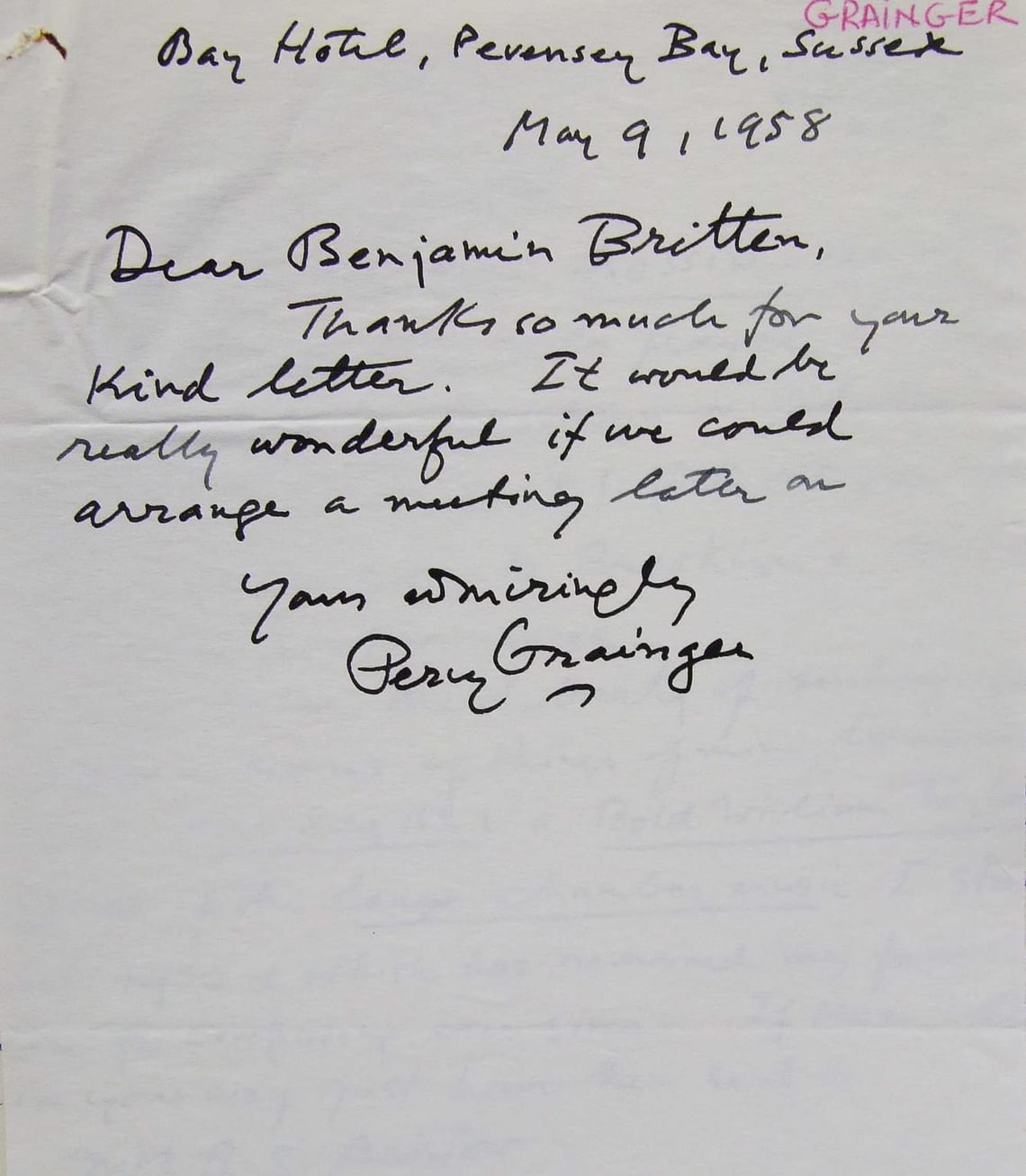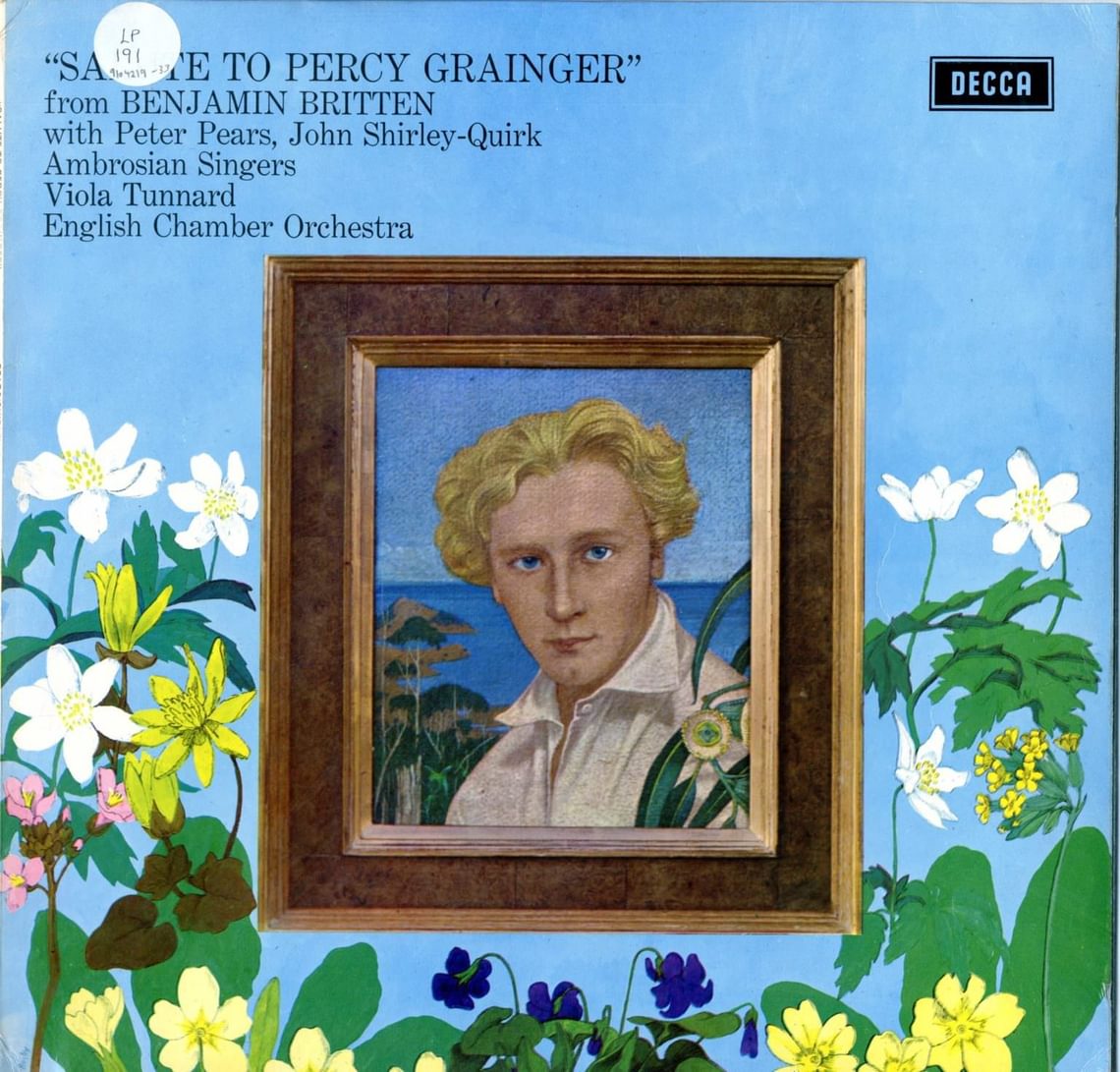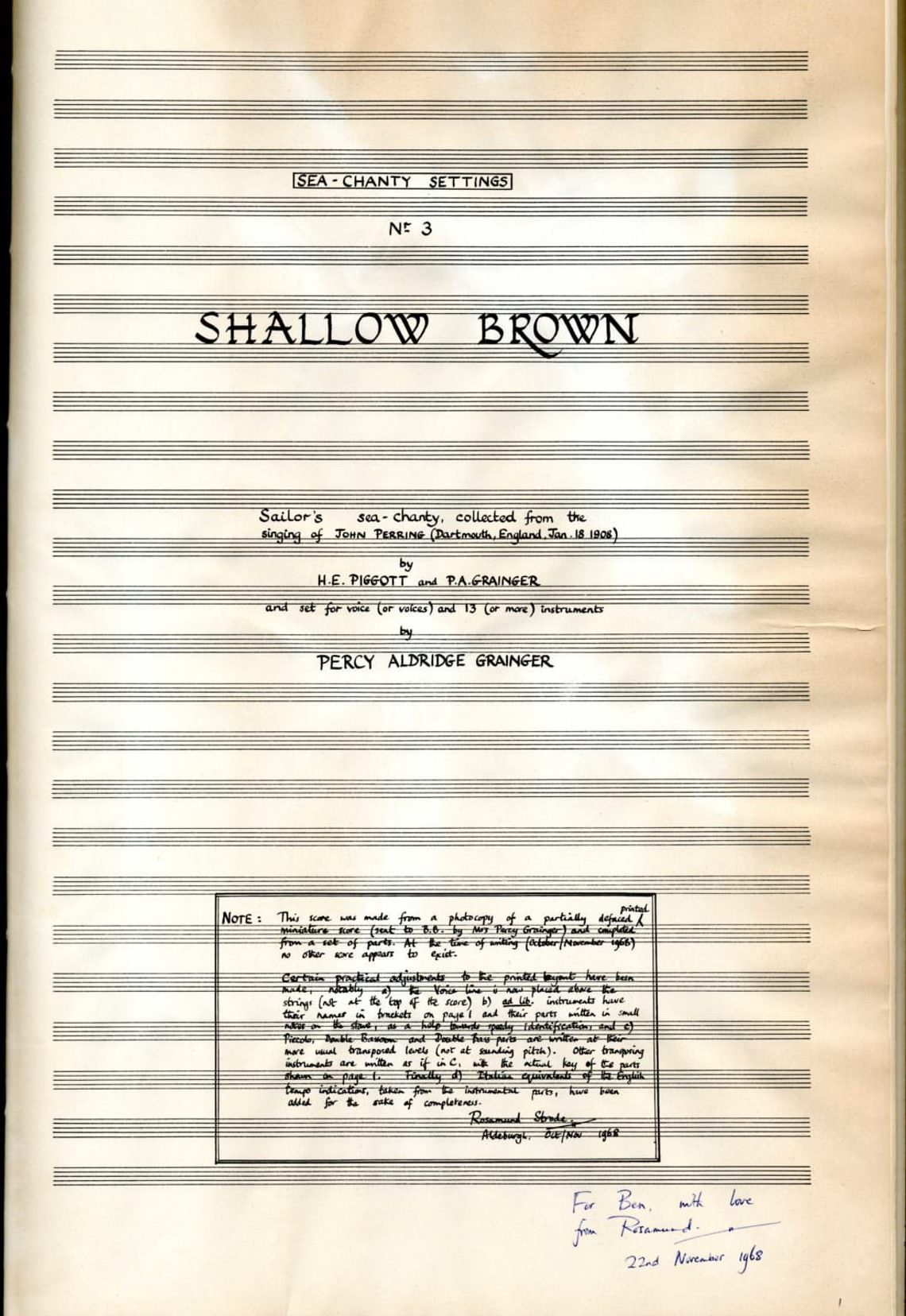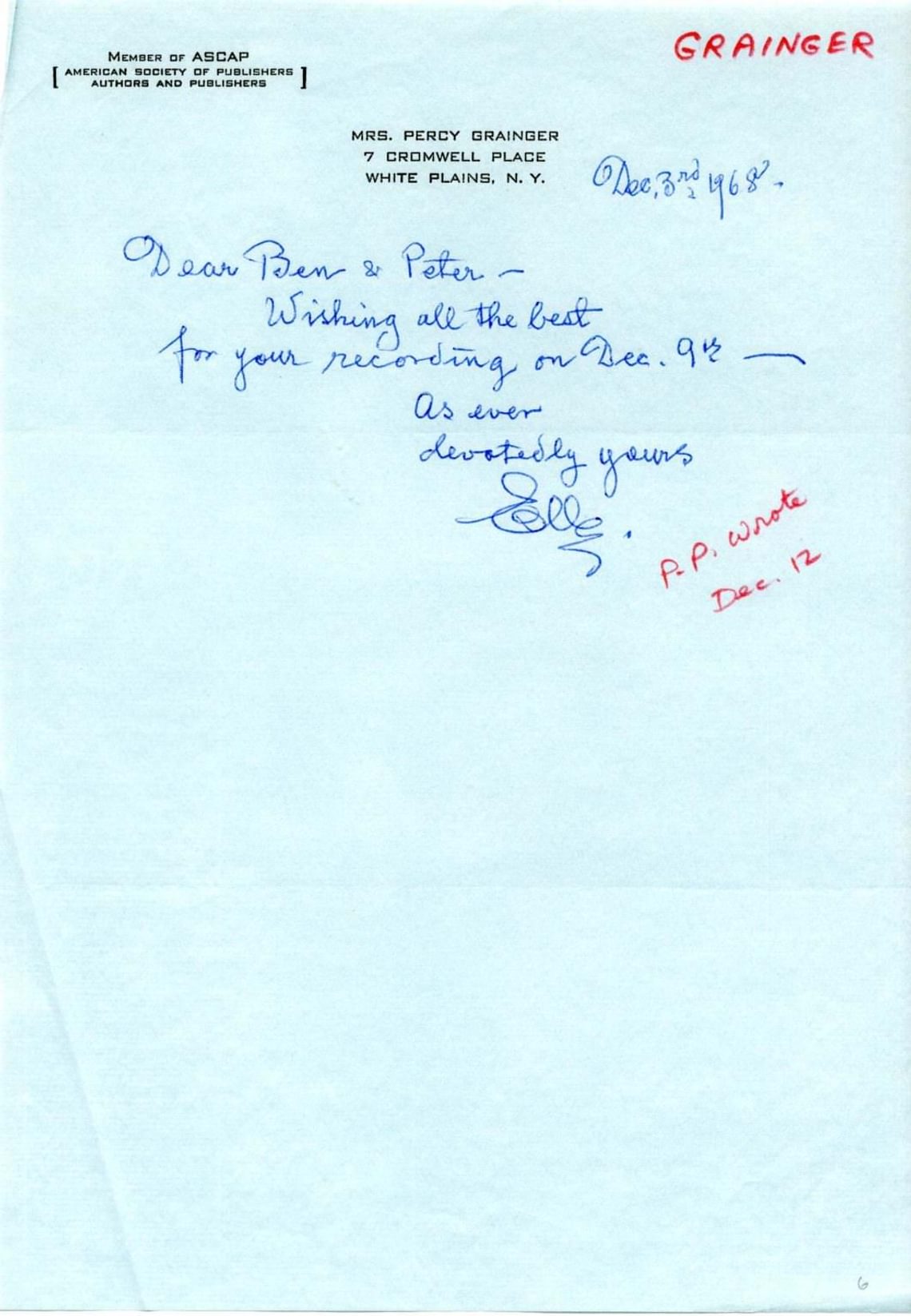As we approach Britten’s 107th birthday a tale from the Archive tells us of a birthday gift that was not only practical, but which also carried great personal meaning for the composer.
‘Lovingly and reverently dedicated to the memory of Percy Grainger’ is how Britten worded his dedication to the Suite on English Folk Tunes, op. 90 ‘A time there was…’, which he completed in November 1974. His final work solely for orchestra, the suite comprises arrangements of a set of traditional pieces gleaned from an early eighteenth-century edition of John Playford’s The Dancing Master, and Cecil Sharp’s The Country Dance Book and the Journal of the Folk Song Society, both published in the early twentieth century.
The Suite symbolises Britten and Grainger’s strong mutual interest in folk music. The two forged a strong affection for one another which can be seen in a series of correspondence that dates from 1949 to 1961. Topics sometimes centred on Grainger’s on-going work on folk music, his letters often brimming with activity and affection.

Grainger’s letter to Britten, 1958.
Grainger had a passionate concern for ensuring the survival of the folk-art tradition. His arrangement of songs and dances forms an integral part of the revival in interest in traditional music that was shared by other composers such as Vaughan Williams, Holst, Delius and Butterworth. Unlike Grainger, Britten did not participate in the field work of collecting tunes from various corners of the kingdom, but his own compositions and arrangements show as intense an interest in the folk tradition. His volumes of songs from Britain, Ireland and France are testimony to that. So too is the way certain material is interspersed into some of his orchestral music, such as Kermesse Canadienne, or quoted in opera, such as Owen Wingrave.
Before the Suite of 1974, Britten paid tribute to Grainger in other ways. The Australian composer and pianist’s music was performed at the Aldeburgh Festival. Events such as a tribute concert in 1966 featured, among others, John Ogden and the Elizabethan Singers presenting favourites including Molly on the Shore, Handel on the Strand and the lesser known Zanzibar Boat Song. In 1970 the entire second half of a concert entitled Up She Goes Again(Five centuries of Folk-Music) was devoted to Grainger. Some of the material in this concert was included in a recording Britten made in the Maltings in December 1968 called A Salute to Percy Grainger. Britten conducted the English Chamber Orchestra with soloists Peter Pears and John Shirley-Quirk, and pianist Viola Tunnard.

A Salute to Percy Grainger cover.
Grainger’s arrangement of the poignant sea shanty (or chanty) Shallow Brown has always been a popular concert item. Britten’s conducting score for this piece has a history of its own. It’s instrumentation is unusual. True to Grainger form Shallow Brown calls for the orchestral accompaniment with the addition of mandolins, mandolas, ukuleles, guitar and ‘2 or 3 pianos’. It was performed on the Salute by Shirley-Quirk with choral backing from the Ambrosian Singers. Unable to locate a score readily, Britten received word in May 1967 from the Grainger Library in White Plains, New York, that a ‘photostat’ was being made of ‘Percy’s score(s) for SHALLOW BROWN. … It consists of two scores – one including all instruments, and the other one of those ‘cue’ scores which Percy found convenient when performing a piano part as one of the ensemble.’
For the recording, the full score from which Britten conducted was made by his assistant Rosamund Strode. A model of attention to detail and an accomplished calligrapher, Strode, who was aware of Britten’s great fondness for Grainger’s work, prepared the score from a photocopy of a partially defaced printed miniature score. This photocopy, Strode tells us in a prefatory note on the title page, was ‘sent to B.B. by Mrs Percy Grainger’. Strode also worked from a set of parts noting that: ‘At the time of writing (October/November 1968) no other score appears to exist.’

Rosamund Strode Title Page for Shallow Brown.
Ella Grainger also maintained a lengthy friendship with Britten that lasted well after her husband’s death. She visited Aldeburgh and corresponded with Britten and Pears for many years, and she sent a note to Britten at the end of 1968 ‘Wishing all the best for your recording on Dec. 9th’.

Ella Grainger to Britten and Pears, December 1968.
Clearly, the idea of working from a ‘photostat’ of two scores was impractical, hence the need to create a new full score. As can be seen from the title page, the score was given to Britten as a birthday gift—rather a timely one in view of the imminent recording. It carried the inscription: ‘For Ben, with love from Rosamund, 22 November 1968’.
- Dr Nicholas Clark, Librarian
